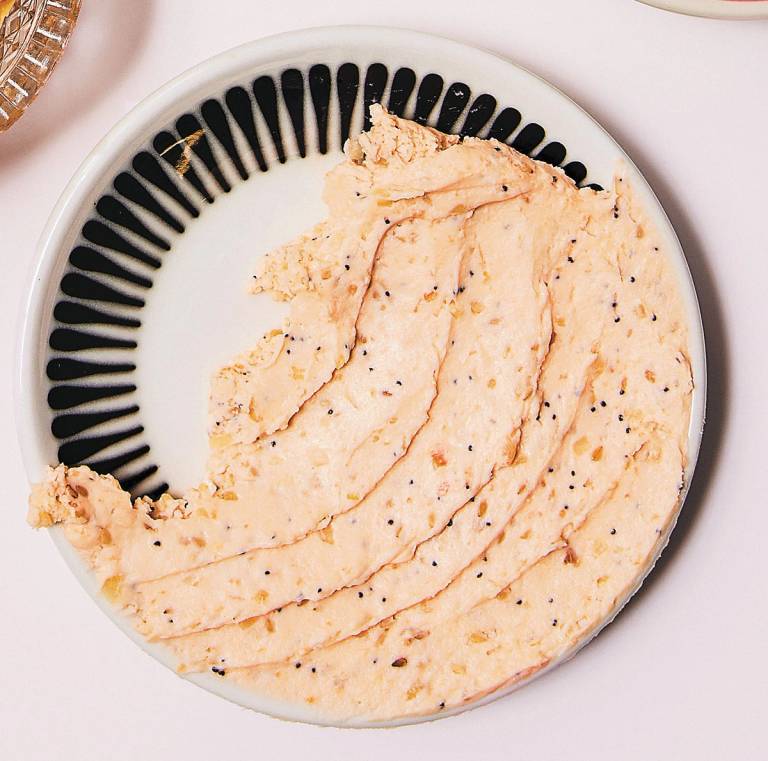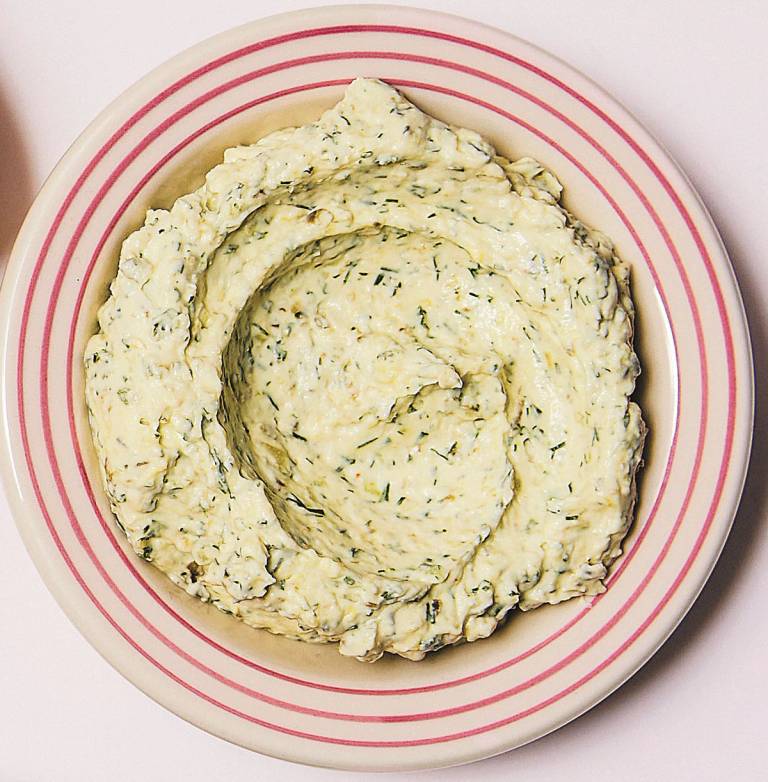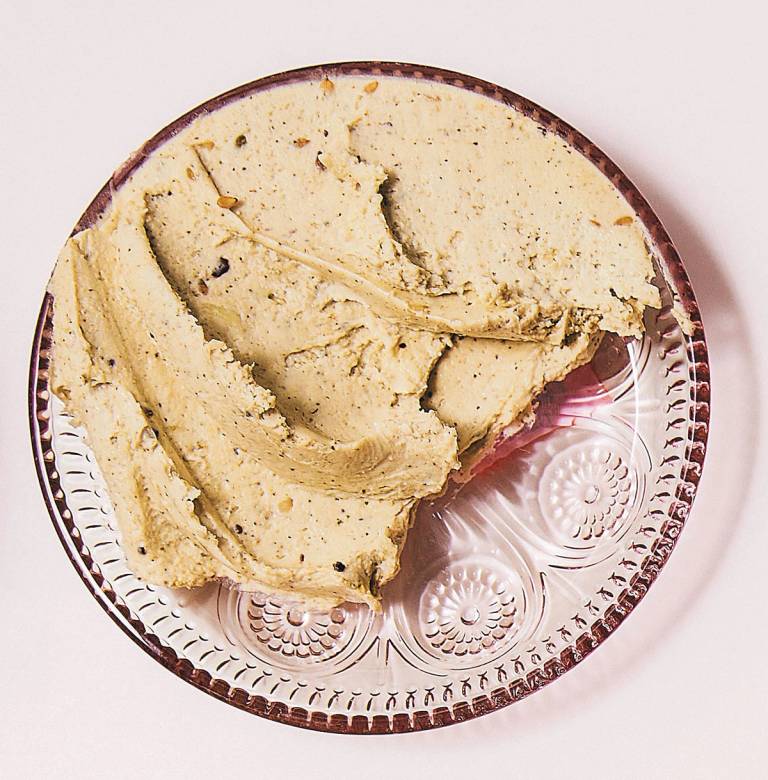Jake Cohen wants you to have fun with cooking—and yes, that goes for the first meal after fasting on Yom Kippur as well. Cohen, whose second book, I Could Nosh: Classic Jew-ish Recipes Revamped for Every Day, was recently published, wants readers to reclaim everyday Jewish hospitality. Which to him means putting the joy back into Jewish cooking and simply having fun with it—as evidenced by the book’s chapter titles, such as “Challah Back,” “I Only Have Time for a Quickie,” and “Who Doesn’t Serve Cake After a Meal?”
In years past, Cohen was usually a guest at family members’ holiday meals. “Yom Kippur was always a big to-do because everyone would be so angry,” said Cohen. “We would break the fast at my aunt’s house, and she’d have all the spreads, and while she had everything we needed, nothing was that great. But we ate it because everyone was just so grumpy.” Years later, after Cohen got married, he and his husband found themselves attending three break-fast meals in one day so they could each be with family. After getting frustrated with the traveling and multiple mediocre meals, he took over. Now he hosts the break the fast meal for family, friends, and anyone who needs a place at the table.
Cohen grew up eating the quintessential Ashkenazi foods, while his husband is Persian Iraqi, with a much different palate. Considering those dissimilar food cultures, I asked Cohen how his husband’s family has come to terms with him taking over the hosting and cooking for break-fast. “So many of his family members have married Ashkenazi spouses that it’s easier for them just to accept bagels and lox,” he said. “Yom Kippur is one they’ve actually conceded to the [Ashkenazim].”
Cohen says a fun and delicious break-fast needs to have four key things: coffee, quality ingredients, something homemade, and something sweet. But definitely coffee first.
“Every year, my guests say, ‘I don’t need my bagel yet, do you have some coffee?’” said Cohen. He wants to make sure his guests feel some relief from the grumpiness and dehydration fasting can cause, so he makes sure he can quench their thirst. “Get a nice pot of coffee going, and have lots of beverages ready for your guests.”
For a meal like a break-fast, to which many of his guests arrive hangry (hungry + angry), his M.O. is to buy the best of what’s available and supplement it with dishes that are quick and simple to prepare ahead of time. “I’m not telling you that you should be making your own bagels. What I am telling you is that you should be getting great bagels,” said Cohen, who prefers PopUp Bagels, and lox from Acme Smoked Fish. “Now you have most of it done, so what can you do to zhuzh it up a little? Make some quick pickled onions, put out some capers, and make a couple of schmears.”
Cohen’s schmears are all things you can prepare in the days before the holiday. “These are a really easy way to step up your table,” he said. “People are going to be wowed. And it’s something that’s still so familiar to guests, but there’s just a little bit of novelty to it.” I Could Nosh features 10 schmears, all requiring 15 minutes of cooking time or less. Cohen always likes to provide a variety of tastes, so there’s a brown butter schmear, a hot honey schmear, a pickled everything schmear, and more. He even includes a za’atar and tahini schmear as a nod to the influence Middle Eastern cuisine has had on his cooking.
After the coffee, bagels, lox, and schmears have been served, Cohen makes sure to seal the meal with something sweet. “You must serve something sweet—but something good, none of that crappy stuff.” While baking right before a fasting holiday may not be top of mind for many hosts, Cohen has many easy-to-make (and freeze) recipes for sweets to conclude every break-fast meal (that won’t get tossed for being too dry). “Too often people go for the basic dry coffee cake,” he said. “Desserts are a big part of the book. There are sweets that you can make in advance to just have out on the counter.”
Cohen aims to get people talking about, and making, Jewish food. By doing that, he also hopes to inspire ritual and tradition. “Food is this medium for ritual,” he said. “I always say Jewish food is nothing without the ritual it’s attached to. So these are opportunities to really dive deeper into our identity through these beautiful foods and recipes that we’ve inherited. And also not take it too seriously, because at the end of the day, it’s about fun.”




